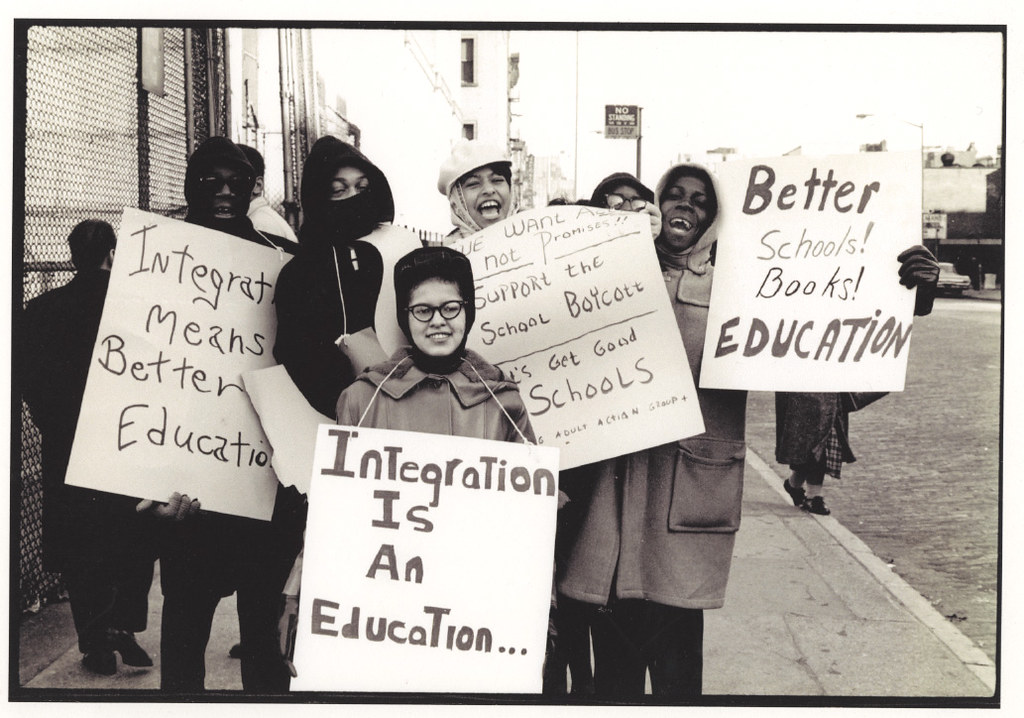Vocabulary
Elated - Extremely happy and excited; delighted; pleased
Conduit- A person or organization that acts as a channel for the transmission of something.
I really enjoyed hearing these articles it was definitely something different. Hearing the people who were part of these situations made it a lot more interesting. These people were personally interviewed to talk about this situation so a lot of this is their side of the story and how they felt. A lot of emotion can also be heard throughout the audio which really made me sympathize with the speaker. Nobody should ever have to feel like they are not good enough for a school that is mainly caucasian students. Also, automatically bring stuff them in a box full of hateful stereotypes because of the color of your skin. Definitely really liked the podcast though I am thinking about whenever I have a chance listening to more stories like this on my free time.
Quotes
"I think that children can overcome the stigma of poverty. I think children can overcome the stigma of their ethnicity. But what they cannot overcome is the stigma of separation. That is like a damned spot in their being, in their self-image. And that's what segregation does to children. They see themselves as apart and separate because of the language they speak, because of the color of their skin, the origin of their parents." - 563: Part Two
I personally really like this quote because what the teacher stated is completely true. People of color can look over these things but looking at the bigger picture of how segregated schools are it ultimately goes back to where they come from. This reminded me of the text Kristof, Land of Limitation because these students are getting a poor education because of the location they are in. In that location, it is mainly African American and latinos. Kristof states "I keep thinking of his prodigious talents that were never fully deployed because, in the United States, too often the best predictor of where we end up is where we start." The Normandy school district had less to offer and in one case a reported follows an AP students from class to class and it was crazy what the reported saw. She saw that there were 4 periods of music, 3 classes of academics, one of the classes the teacher actually taught. Nobody in the Normandy is being pushed to their fullest potential because there is not challenge. These students are just left to figure it out on their own. While in Francis Howell one student who came from Normandy had a completely different experience. She was involved in sports, also in honor classes but was definitely being challenged academically. While the AP student in Normandy was receiving worksheets that looked like it was middle school leveled. It eventually depends on where you come from.
"In the schools where white families chose to stay, test scores for black transfer students rose. They were more likely to graduate and go to college. After years of resistance, Saint Louis had created the largest and most successful metro-wide desegregation program in the country. And then state officials killed it."
These are reasons why interaction is such an important thing for all students. African American students in the Francis Howell school district had better test scores, and most likely going to go to college. While in their former district, it was about half of the African American boys who did not graduate. Having these kids intergrade in a school that has more resources, funding, and benefits the students from Normandy will have the same opportunity. The students have greater educational needs and if they can not receive them then they are stuck. They have a bunch of disadvantages in the Normandy district.
Connections- While I was listening to part 1 of The Problem We Live With the part when the parents were outraged about the African American students coming into their school it reminded me of the Little Rock Crisis in 1957. In 1953, the supreme court declared public schools segregation to be unconstitutional because of the Brown V Board of Education case. Despite having a law to integrate students schools tried to find ways to resist it. In 1957, there were 9 African American students who were accepted in Little Rock High School which was an all-white high school. From this day on they are known as the Little Rock 9. On the first day of school, the students were greeted by a mob of angry white students, parents, and government officials. These students were not allowed to enter the school. It went so far that the governor of Arkansas had their National Guard block the entrance so the students could not enter. Eventually, 3 weeks later the president at the time Dwight Eisenhower sent troops to have the kids escorted safely into the school. These were some of the first steps to having school become integrated. How far we have come in history and we should not be backtracking now. Moving forward and try and having schools like in Hartford Connecticut which is 50 percent integrated.


Amy, I completely agree with your description of the second quote you chose to post about. It really does support the fact that we have found something that works to eliminate lower performing and higher performing schools to make them "equal" again: integration. The sad part is we are too afraid to acknowledge that integration works, simply because we are uncomfortable to confront it as being a "racial" issue.
ReplyDelete